Chapter 4-1
- 格式:ppt
- 大小:1.79 MB
- 文档页数:89
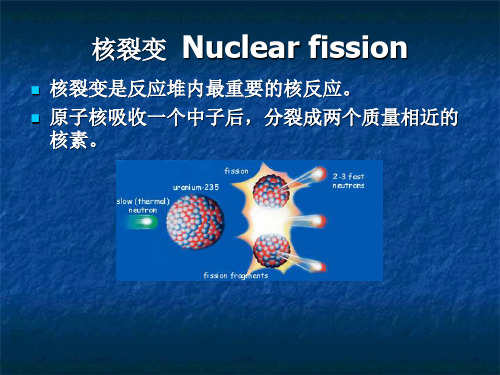


NotesLetter 11.offer 与quotation的区别:Offer为报盘,也就是说除了针对某种商品的价格外,还应该包括数量、交货期、支付方式等交易条件。
quotation为报价,即某种商品的价格。
2.acknowledge v. 承认或宣布收到acknowledgement n. 承认;收悉通知acknowledge receipt ofmake acknowledgement to确认收到某人来信用acknowledge确认收到某人来电报用confirmEg:我们确认收到你方十月十日的来函。
We acknowledge your letter of Oct.10.We acknowledge receipt of your letter of Oct.10We make acknowledgement to your letter of Oct.10.We have for acknowledgement your letter of Oct.10.3.date v. 加日期于;日期为;与介词of作用相同We have received your letter of Nov.18. We have received your letter dated Nov. 18.4.offer v/n 报盘offer sb sth at a price 以…价格向某人报盘offer sb firm 给某人报实盘make sb a firm offer for sth at a price 向…报实盘a firm offer 实盘a non-firm offer 虚盘to accept an offer 接受报盘to confirm an offer 确认报盘a firm offer 实盘a non-firm offer 虚盘to accept an offer 接受报盘to confirm an offer 确认报盘to decline an offer 拒绝报盘to entertain an offer 考虑接受报盘to extend an offer 延长报盘to withdraw an offer 撤销报盘to cancel an offer 取消报盘to renew an offer 恢复报盘a combined offer 搭配报盘5.L/C letter of credit 商业信用证6.in one’s favor 以某方为受益人7.payable by draft at sight 凭即期汇票支付8.EMP 欧洲主要港口缩写为EMP,按照航运公会统一规定欧洲主要港口有:英国London(伦敦)法国Marseilles(马赛)意大利Genoa(热那亚)德国Hamburg(汉堡)荷兰Rotterdam(鹿特丹)比利时Antwerp(安特卫普)丹麦Copenhagen(哥本哈根)9.firm adj. 确定的;有效的Our offer is firm for 5 days.我方报盘有效期为五天。
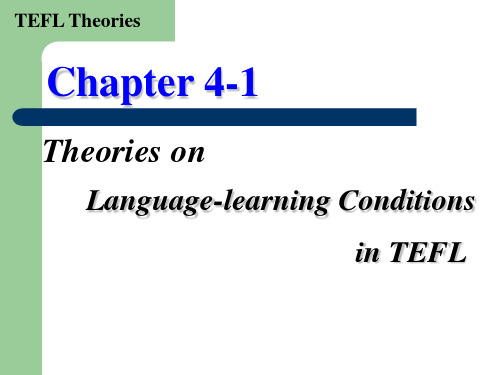
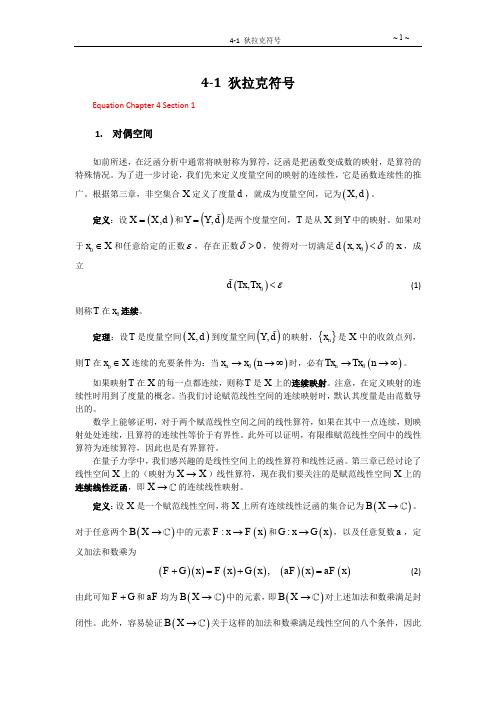
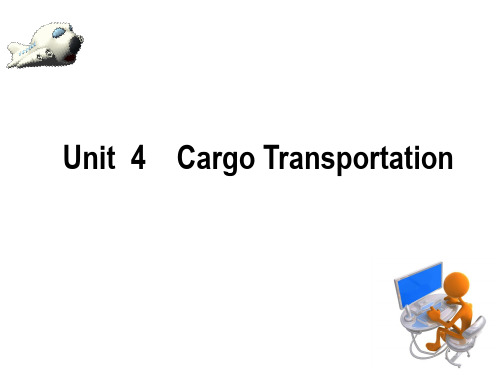


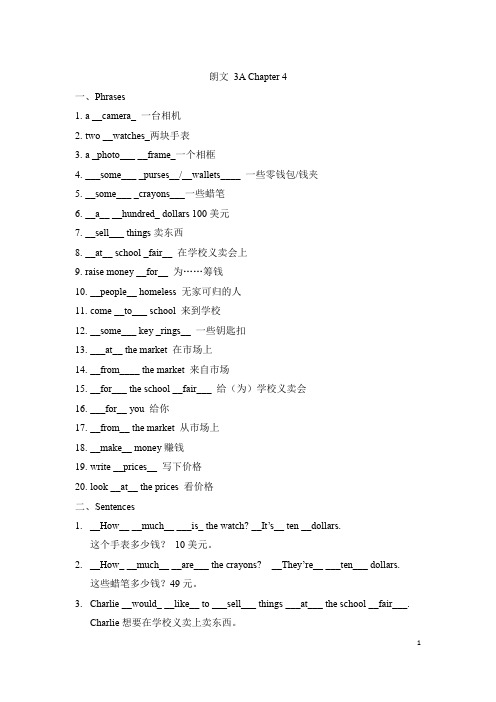
朗文3A Chapter 4一、Phrases1.a __camera_ 一台相机2.two __watches_两块手表3.a _photo___ __frame_一个相框4.___some___ _purses__/__wallets____ 一些零钱包/钱夹5.__some___ _crayons___一些蜡笔6.__a__ __hundred_ dollars 100美元7.__sell___ things卖东西8.__at__ school _fair__ 在学校义卖会上9.raise money __for__ 为……筹钱10.__people__ homeless 无家可归的人e __to___ school 来到学校12.__some___ key _rings__ 一些钥匙扣13.___at__ the market 在市场上14.__from____ the market 来自市场15.__for___ the school __fair___ 给(为)学校义卖会16.___for__ you 给你17.__from__ the market 从市场上18.__make__ money赚钱19.write __prices__ 写下价格20.look __at__ the prices 看价格二、Sentences1.__How__ __much__ ___is_ the watch? __It’s__ ten __dollars.这个手表多少钱?10美元。
2.__How_ __much__ __are___ the crayons? __They’re__ ___ten___ dollars.这些蜡笔多少钱?49元。
3.Charlie __would_ __like__ to ___sell___ things ___at___ the school __fair___.Charlie想要在学校义卖上卖东西。

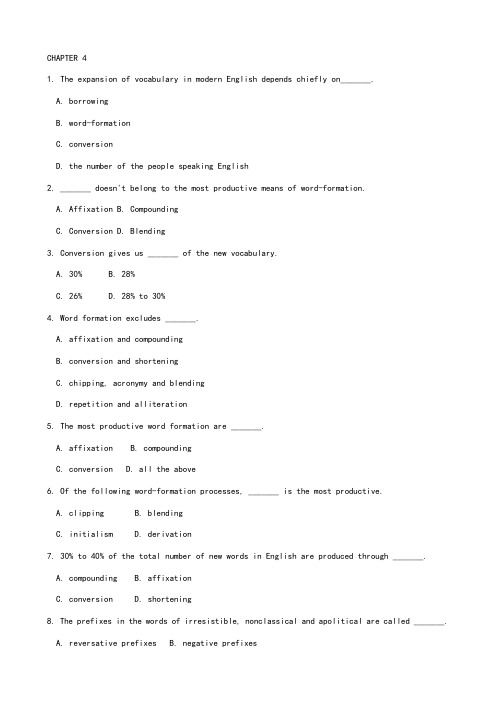
CHAPTER 41. The expansion of vocabulary in modern English depends chiefly on_______.A. borrowingB. word-formationC. conversionD. the number of the people speaking English2. _______ doesn't belong to the most productive means of word-formation.A. AffixationB. CompoundingC. ConversionD. Blending3. Conversion gives us _______ of the new vocabulary.A. 30%B. 28%C. 26%D. 28% to 30%4. Word formation excludes _______.A. affixation and compoundingB. conversion and shorteningC. chipping, acronymy and blendingD. repetition and alliteration5. The most productive word formation are _______.A. affixationB. compoundingC. conversionD. all the above6. Of the following word-formation processes, _______ is the most productive.A. clippingB. blendingC. initialismD. derivation7. 30% to 40% of the total number of new words in English are produced through _______.A. compoundingB. affixationC. conversionD. shortening8. The prefixes in the words of irresistible, nonclassical and apolitical are called _______.A. reversative prefixesB. negative prefixesC. pejorative prefixesD. locative prefixes9. Affixation is generally defined as the formation of words by adding word-forming or _______ to stems.A. affixesB. suffixes and prefixesC. inflectional affixesD. derivational affixes10. The words formed by affixation are called _______.A. affixesB. derivationsC. derivativesD. derivationals11. According to the _______ which affixes occupy in words, affixation falls into two subclasses: prefixation and suffixation.A. functionsB. positionsC. waysD. none of the above12. Prefixes do not generally change the _______ of the stem but only modify its meaning.A. word-classB. meaningC. formD. structure13. Accordingly, prefixes are classified on a semantic basis into _______ groups.B. 8D. 1014. These are negative prefixes except _______.A. dis-B. in-C. non-D. under-15. "Ex-" in the word "ex-prisoner" is _______.A. free rootB. bound rootC. inflectional affixD. derivational affix16. All of the following are pejorative prefixes except _______.A. mal-B. arch¬C. pseudo-D. mis-17. The "de -" in "decompose" is _______.A. a negative prefixB. a pejorative prefixC. a reversative prefixD. an orientation prefix18. The prefixes contained in the following words are called _______:pseudo, friend, malpractice, mistrust.A. reversative prefixedB. negative prefixesC. pejorative prefixesD. locative prefixes19. The prefixes in words anti-government, pro-student and contraflow are _______.A. prefixes of degree or sizeB. prefixes of orientation and attitudeC. prefixes of time and orderD. miscellaneous prefixes20. The prefixed contained in unwrap, de-compose and disallow are _______.A. reversative prefixedB. negative prefixesC. pejorative prefixesD. locative prefixes21. The prefixes in words extra-strong, overweight and archbishop are _______.A. negative prefixesB. prefixes of degree or sizeC. pejorative prefixesD. locative prefixes22. A subcutaneous infection is _______ the skin.A. on the surface ofB. aboveC. underD. below23. Some doctors prescribe medication to treat hyperactive children, because the children are extremely _______.A. activeB. passiveC. lazyD. diligent24. _______ of the given prefixes indicates number.A. fore-B. anti-C. semi-D. pan-25. The primary function of suffixes is to _______.A. change the word-class of rootsB. change the meaning of stemsC. change the grammatical function of stemsD. change the structure of roots26. The "auto" in "autobiography" is _______.A. a negative prefixB. a pejorative prefixC. a reversative prefixD. a miscellaneous prefix27. The prefixes in words bilingual, uniform and hemisphere are _______.A. number prefixesB. prefixes of degree or sizeC. pejorative prefixesD. locative prefixes28. _______ are contained in words trans-world, intra-party and forehead.A. Prefixes of orientation and attitudeB. Prefixes of time and orderC. Locative prefixesD. Prefixes of degree or size29. The prefixes in words new-Nazi, autobiography and pan-European are _______.A. negative prefixesB. prefixes of degree or sizeC. prefixes of time and orderD. miscellaneous prefixes30. Ex-student, foretell and post-election contain _______.A. negative prefixesB. prefixes of degree or sizeC. prefixes of time and orderD. locative prefixes31. Which of the following prefixes can not be used to indicate time and orderA. Ex-.B. Fore-.C. Post-.D. Para-.32. Which of the following is a case of suffixationA. HemisphereB. AttemptC. NATOD. Respondent33. A multiplied insect has _______ feet.A. twoB. fourC. sixD. many34. A tricycle has _______ wheels.A. oneB. twoC. threeD. Four35. Which of the following belongs to number prefixesA. Auto-.B. Mis-.C. Hemi-.D. Pre-.36. We usually group suffixes on a _______ basis into noun suffixes, verb suffixes, adjective suffixes, etc.A. grammatical C. meaningfulB. structural D. practical37. -eer, -er, -ess, -ette, -let are all suffixes added to noun bases to produce _______ nouns.A. abstract C. concreteB. de-verbal D. de-adjective38. These are adjective suffixes except _______.A. -ishB. -iveC. -aiD. -ance39. The word "courageous" is created by _______.A. noun suffixesB. adverb suffixesC. adjective suffixesD. verb suffixes40. The meanings of "comic" and "comical" are _______.A. sameB. identicalC. similarD. different41. Which of the following suffixes can be used to form both nouns and adjectivesA. -ion.B. -ism.C. -ity.D. -ist.42. The following are all denominal suffixes EXCEPT _______.A. -fulB. -wiseC. -lessD. -like43. _______ of the following is not a verb suffix.A. -ateB. -enC. -ed44. The suffixes in words heighten, symbolize are _______.A. noun suffixesB. verb suffixesC. adverb suffixesD. adjective suffixes45. The suffixes in words clockwise, homewards are _______.A. noun suffixesB. verb suffixesC. adverb suffixesD. adjective suffixes46. The differences between compounds and free phrases show in _______ aspects.A. phonetic featuresB. semantic featuresC. grammatical featuresD. all the above47. There are _______ major classes of compounds.A. twoB. fourC. threeD. five48. " Washing machine" is a word formed by _______.A. prefixationB. compoundingC. conversionD. blending49. "Law-abiding" belongs to _______.A. adjective compoundB. noun compoundC. verb compoundD. none of the above50. "up-bringing" belongs to _______.A. adjective compoundB. noun compoundB. verb compound D. none of the above51. Verb compounds are created either through _______ or _______.A. affixation; conversionB. clipping; affixationC. conversion; backformationD. backformation; borrowing52. Which of the following is not through backformationA. To mass-produce.B. To lip-read.C. To nickname.D. To chain-smoke.53. Conversion is a method _______.A. of turning words of one part of speech to those of a different part of speechB. of converting words of one meaning into different meaningC. of deriving words through grammatical meansD. of changing words in morphological structure54. In a derivational process, an item is converted to a new word class without the addition of an affix. The name is _______.A. full conversionB. partial conversionC. functional shiftD. zero-derivation55. Words involved in conversion are primarily _______.A. nouns, verbs and adverbsB. nouns, adjectives and verbsC. nouns, prepositions and verbsD. adjectives, adverbs and verbs56. Almost all monomorphemic _______ can be conversed into nouns, which are semantically related to the original verbs in various ways.A. verbsB. adjectivesC. adverbsD. prepositions57. Nouns converted from adjectives have all the characteristics of nouns and achieve a full noun status, thus known as _______.A. partial conversionB. full conversionC. speech shiftD. grammatical shift58. Nouns partially converted from adjectives do not possess all the qualities a noun does. Theymust be used together with _______.A. plural formsB. single formsC. adjectivesD. definite articles59. In most cases a noun can be converted to a verb _______.A. with some changesB. without any changeC. with some changes in spellingD. without any change in pronunciation60. The "house" in "the peasant housed him" belongs to the conversion _______.A. between noun and adjectiveB. between noun and verbC. between verb and adjectiveD. none of the above61. The conversion of two-syllable nouns into verbs involves a change of _______.A. spellingB. pronunciationC. stressD. function62. "Empty" in the sentence "The meeting was over and the meeting-room began to empty" is _______.A. adjectiveB. verbC. nounD. four63. Which of the following words is NOT formed through clippingA. Dorm.B. Motel.C. Gent.D. Zoo.64. _______ are words pronounced letter by letter.A. InitialismsB. AcronymsC. BlendsD. Clips65. Of the following words, _______ is an initialism.A. UNB. NATOC. BASICD. UNESCO66. "BBC" is formed in the way of _______.A. acronymyB. clippingC. back-formationD. prefixation67. "TV" is a (n) _______.A. initialismB. acronymC. derivativeD. compound68. Back-formation is considered to be the opposite process of _______.A. prefixationB. suffixationC. acronymy D- conversion69. Back-formation is the method of creating new words by _______ the supposed suffixes.( )A. removingB. combiningC. shorteningD. considering70. Back-formation usually involves _______ types of words.A. threeB. fourC. fiveD. two71. Stylistically, back-formed words are largely some of them have not gained public acceptance.A. formalB. adjectivesC. human nounsD. informal72. The word "sandwich" which now denotes a popular fast food originates from _______.A. FaradayB. John MontagueC. BloomersD. Thomas More73. Mackintosh, bloomers and cherub are from _______.A. names of booksB. names of placesC. names of peopleD. trade-names74. Rugby, afghan and champagne are words coming from _______.A. names of booksB. names of placesC. names of peopleD. tradenames75. Utopia, odyssey and Babbit are words from _______.A. names of booksB. names of placesC. names of peopleD. tradenames76. Which of the following words is NOT from ChineseA. Tea.B. Ketchup.C. Kungfu.D. Czar.77. Omega, Xerox and orlon are words from _______.A. names of booksB. names of placesC. names of peopleD. tradenames78. _______ are affective words as they are expressions of emotions such as oh, dear, me, alas.A. PrepositionsB. InterjectionsC. ExclamationsD. Explanations79. 30% to 40% of the total number of new words in English are produced through _______A. compoundingB. affixationC. conversionD. shortening80. The prefixes mal- in maltreat, mis- in misleading and pseudo- in pseudo- scientific are ______ prefixes.A. negativeB. reversativeC. pejorativeD. locative81. The prefixes like un- and dis- can be regarded both as negative prefixes and as privative prefixes. The justification of their category lies in _______.A. meaningB. functionC. collocationD. word-class82. Some prefixes are categorized as _______ since their chief function is to change the base from one word class to another.A. conversion prefixesB. prefixes of orientation and attitudeC. inflectional prefixesD. prefixes of time and order83. The word employer is composed of " employ+er", of which -er is the so-called _______ suffix.A. verbB. deverbal nounC. denominalD. denominal noun84. As a suffix, _______ means "receiver of the action".A. -eerB. -essC. -erD. -ee85. The suffix -or in actor is a(n) _______ suffix and -ance in performance is a(n) _______noun suffix.A. concrete; concreteB. abstract; concreteC. abstract; abstractD. concrete; abstract86. The suffix -ful in mouthful is a suffix and in graceful is a _______ suffix.A. denominal adjective; denominal adjectiveB. denominal noun; denominal adjectiveC. denominal noun; denominal nounD. denominal adjective; denominal noun87. Of the three words, _______ refers to the physical or heroic qualities of a man, _______ is applied to nonhumans and _______ implies unwelcome masculine attributes usually in a woman.A. manly; manlike; mannishB. manly; mannish; manlikeC. mannish; manlike; manlyD. mannish; manly; manlike88. The pattern of deadline and blueprint is _______ in formation.A. n. + n.B. n. + v.C. adj. + n.D. adj. + v.89. The grammatical relationship between the elements in fist-fighting is _______.A. subject-}-verbB. verb+objectC. verb ~h adverbialD. subject+adverbial90. The conversion of two syllable nouns into verbs usually involves a change of _______.A. spellingB. pronunciationC. stressD. function91. Through _______, we get lip-read out of lip-reading.A. lexicalizatjonB. conversionC. rearrangementD. backformation92. The process in which nouns converted from adjectives do not possess all the qualities a noun does is called a _______ conversion.A. functionalB. fullC. partialD. miscellaneous93. The word motel comes from "motor-f-hotel". This is an example of _______ in terms of word formation.A. backformationB. conversionC. blendingD. acronym94. The words socio-linguistic and psycho-analysis are _______ according to the bases with which they are coined.A. compoundsB. blendsC. derivativesD. acronyms96. The case of exec derived from executive is an instance of _______ clipping.A. frontB. backC. front and backD. phrase97. AIDS, which is an instance of _______, is short for "acquired immune deficiency syndrome".A. pure acronymsB. hybrid acronymsC. syllabic acronymsD. initialisms98. The word medicare comes from "medical+care", so its structure is _______.A. head+wordB. word+tailC. head+headD. head+tail99. Almost all the back-formed words are _______.A. nounsB. verbsC. adjectivesD. adverbs100. Words produced through affixation constitute _______ of all the new words.A. 20% to 30%B. 30% to 40%C. 40% to 50%D. 10% to 20%101. The most productive word formation is _______.A. affixationB. compoundingC. conversionD. acronymy102. The expansion of vocabulary in modern English depends chiefly on . [ ]A. word-formationB. prefixationC. suffixationD. compounding103. _______ is the formation of words by adding word-forming or derivational affixes to stems.A. PrefixationB. DerivationC. SuffixationD. Compounding104. According to the positions which affixes occupy in words, affixation falls into two subclasses: _______ and _______.A. clipping, blendingB. compounding, conversionC. conversion, derivationD. prefixation, suffixation105. We shall classify prefixes on semantic basis intoA. sevenB. eightC. nineD. eleven106. The prefix "pseudo" is _______.A. a negative prefixB. a reversative prefixC. a locative prefixD. a pejorative prefix107. The "de-" in "decompose" is _______.A. a negative prefixB. a pejorative prefixC. a reversative prefixD. an orientation prefix108. The chief function of prefixation is to _______.A. change meanings of the stemB. change the word-class of the stemC. change grammatical functionD. all the above109. The "auto" in "autobiography" is _______.A. a negative prefixB. a locative prefixC. a reversative prefixD. a miscellaneous prefix110. The chief function of suffixation is to _______.A. change meanings of the stemB. change the word class of the stemC. change the lexical meaningD. all the above111. The word "courageous" is created by _______.A. noun suffixesB. adverb suffixesC. adjective suffixesD. verb suffixes112. The meanings of "comic" and "comical" are _______.A. sameB. identicalC. similarD. different113. For the word "political”, its negative form is " _______.A. apoliticalB. ilpoliticalC. inpoliticalD. impolitical114. The differences between compounds and free phrases show in _______.A. phonetic featuresB. semantic featuresC. grammatical featuresD. all the above115. _______ is the formation of new words by joining two or more stems.A. SuffixationB. CompositionC. ConversionD. Clipping116. " Law-abiding" belongs to _______.A. adjective compoundB. noun compoundC. verb compoundD. none of the above117. "Sit-in" belongs to _______.A. adjective compoundB. noun compoundC. verb compoundD. none of the above118. "up-bringing" belongs to _______.A. adjective compoundB. noun compoundC. verb compoundD. none of the above119. Verb compounds are created either through _______ or _______.A. affixation/conversionB. clipping/affixationC. conversion/backformationD. back-formation/borrowing120. In compounds, the word stress usually occurs on _______ whereas in noun phrase _______ is generally stressed if there is only one stress.A. the first element/the second elementB. the second element/the first elementC. the first element/the first elementD. the second element/the second element121. Most compounds consist of only _______ stems.A. threeB. twoC. fourD. five122. Words mainly involved in conversion are _______.A. nouns, verbs and adverbsB. nouns, adjectives and verbsC. nouns, prepositions and verbsD. adjectives, adverbs and verbs123. The derivational process, in which an item is converted to a new word class without the addition of an affix, is called _______.A. full conversionB. partial-conversionC. semantic shiftD. zero-derivation124. The "house" in "the peasant housed him" belongs to the conversion _______.A. between noun and adjectiveB. between noun and verbC. between verb and adjectiveD. none of the above125. Nouns converted from adjectives have all the characteristics of nouns and achieve a full noun status, thus known as _______.A. partial conversionB. full conversionC. functional shiftD. grammatical shift126. Nouns partially converted from adjectives do not possess all the qualities a noun does. They must be used together with _______.A. plural formsB. single formsC. adjectivesD. definite articles127. The conversion of two syllable nouns into verbs involves a change of _______.A. spellingB. pronunciationC. stressD. function128. Words produced by conversion are primarily _______.A. nounsB. adjectivesC. verbsD. all the above129. The most productive conversion is the conversion that takes place _______.A. between nouns and verbsB. between nouns and adjectivesC. between verbs and adjectivesD. none of the above130. The overwhelming majority of blends are _______.A. verbsB. nounsC. adjectivesD. adverbs131. Back-formation is therefore the method of creating words by _______ the supposed suffixes.A. removingB. shorteningC. addingD. writing132. Back-formation is considered to be the opposite process of _______.A. prefixationB. suffixationC. acronymyD. conversion133. Words formed by acronymy can be divided into initialisms and acronyms depending on _______.A. the grammatical functionB. the pronunciation of the wordsC. the spelling wayD. none of the above134. Word formation excludes _______.A. affixation and compoundingB. conversion and shorteningC. chipping, acronymy and blendingD. repetition and alliteration135. Which of the following is a case of suffixationA. Hemisphere.B. Disunite.C. NATO.D. Respondent.136. A tricycle has _______ wheels.A. twoB. fourC. sixD. three137. The prefixes in the words*, irresistible, non-classical and apolitical are called _______.A. reversative prefixesB. negative prefixesC. pejorative prefixesD. locative prefixes138. Rugby, afghan and champagne are words coming from _______.A. names of booksB. names of placesC. names of peopleD. tradenames139. Some doctors prescribe medication to treat hyperactive children, because the children are extremely _______ .A. activeB. passiveC. lazyD. diligent140. Ex-student, foretell and post-election contain _______.A. negative prefixesB. prefixes of degree or sizeC, prefixes of time and order D. locative prefixes141. _______are words pronounced letter by letterA. InitialismsB. AcronymsC. BlendsD. Compounds142. What does the neo-mean in neo-NaziA. Old.B. Poor.C. New.D. Rich.143. Which of the following words is NOT formed through clippingA. Dorm.B. Slurb.C. Gent.D. Zoo.144. Which of the following belongs to number prefixesA. Fore-.B. Pro-.C. Hemi-.D. Pre-.145. There are _______ major classes of compounds.A. twoB. fourC. threeD. five146. Mackintosh, bloomers and cherub are from _______.A. names of booksB. names of placesC. names of peopleD. tradenames147. The suffixes in words clockwise, homewards are _______.A. noun suffixesB. verb suffixesC. adverb suffixesD. adjective suffixes148. The suffixes in words heighten, symbolize are _______.A. noun suffixesB. verb suffixesC. adverb suffixesD. adjective suffixes149. Of the following words, _______ is an initialism.A. UNB. NATOC. BASICD. UNESCO150. Of the following word-formation processes, is the _______ most productive.A. clippingB. blendingC. initialismD. affixation151. The prefixes in words neo-Nazi, autobiography and pan-European are _______.A. negative prefixesB. prefixes of degree or sizeC. prefixes of time and orderD. miscellaneous prefixes152. Which of the following words is NOT from ChineseA. Tea.B. Ketchup.C. Kungfu.D. Czar.153. Which of the following suffixes can be used to form both nouns and adjectivesA. -ion.B. -ism.C. -ity.D. -ist.154. Utopia, odyssey and Babbit are words from _______.A. names of booksB. names of placesC. names of peopleD. tradenames1. Affixes and compounding processes may become _______ on one time.2. Not all the words that are produced by applying the word-forming rule are _______ .3. Words produced through compounding yields _______ of all the new word.4. New words which are created by adding affixes to stems are called _______.5. _______ is the formation of new words by adding prefixes to stems.6. The majority of prefixes are _______ by their non-class-changing nature.7. Affixation, also called _______, is one of the word formations.8. Derivational affixes can be further divided into _______ and suffixes.9. Prefixes are those affixes that added to the head of words, which primarily change the _______ of the stem.10. The formation of words by adding word-forming affixes to stems is called _______.11. The chief function of _______ is not to change the word class of the stem, but to change its meaning.12. Suffixation is the formation of new word by adding _______ to stems.13. In the word "post-war" , "post-" is a prefix of _______.14. Compounding is the formation of new words by joining _______.15. Compounds and derived words are _______ words and the meanings of many are the sum total of the morphemes combined.16. The open _______ are the same in form as free phrases.17. The stress patterns of compounds are not _______.18. Compounds are different from free phrases in _______ unit.19. A compound tends to play a single _______ role in a sentence.20. An alternative for conversion is _______.21. _______ is the formation of new words by converting words of one class to another class.22. Almost all monomorphemic verbs can be used as nouns, which are _______ related to the original verbs in various ways according to Quirk et al.23. Such words as "the richer”, "the poor”, "the most corrupt" are all examples of _______.24. The words "autocide" and "telex" are formed by _______.25. With the development of market economy psywar becomes more and more popular. "Psywar" means _______.26. _______ is the formation of new words by combining parts of two words or a word plus a part of another word.27. A common way of making a word is to shorten a longer word by cutting a part off the original and using what remains instead. This is called _______.28. _______ is the process of forcing new words by joining the initial letters of names of social and political organizations or special phrases and technical terms.29. _______ is considered to be the opposite process of suffixation.30. A word is the _______ of form and meaning.31. Modern English expands its vocabulary chiefly through _______.32. The three main means of creating new words in modern English are _______, compounding and conversion.33. Shortening including clipping and _______ is also a way of forming new words in modern English.34. Affixation falls into two subcategories prefixation and _______.35. Affixation is also known as _______.36. The prefixes bi-, multi- and tri- are all _______ prefixes.37. Compounds can be written solid, _______ and open.38. A compound is a unit consisting of more than one base and functioning both grammatically and _______ as a single word.39. The words sit-in and handshake are both _______ compounds.40. Verb compounds are generally created either through _______or back-formation.41. Compounds are largely the results of _______ of phrases.42. If we need a word which is not found, we can easily make one through _______ or rearrangement of word-forming elements.43. Conversion is also known as _______ since it does not change the morphological structure of words but their function.44. Regarded as a derivational process without the addition of an affix, conversion can be called as _______.45. Words formed through acronymy can be divided into _______ and acronyms depending on the pronunciation of the words.46. Such words as goody-goody, willy-nilly and fiddle-faddle are known as _______ in terms of word formation.47. The process is called _______ when proper names are changed into common words in use.48. Words like nylon, orlon and rayon come from _______, a type of proper names.49. The overwhelming majority of blends are _______.50. Words imitating natural sounds are _______words.51. Affixation, also called _______, is one of the word formations.52. In modem times, the expansion of _______ is mainly through word-formation.53. The number of inflectional affixes is _______and stable, which makes English one of the easiest language to learn.54. According to suffixation theory, “villager" is called denominal noun and “employer" is called _______noun.55. Derivational affixes can be further divided into _______and suffixes.56. Prefixes do not generally change the _______of the stem but only modify its meaning.57. Not all the words that are produced by applying the word-forming rule are _______.58. Compounding is the formation of _______ by joining two or more stems.59. Words produced through compounding yields _______ of all the new words.60. _______ conversion and _______ conversion are concerned with adjectives when converted to nouns.61. An alternative for conversion is _______.。
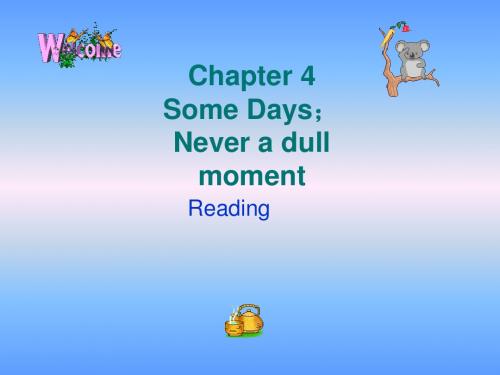
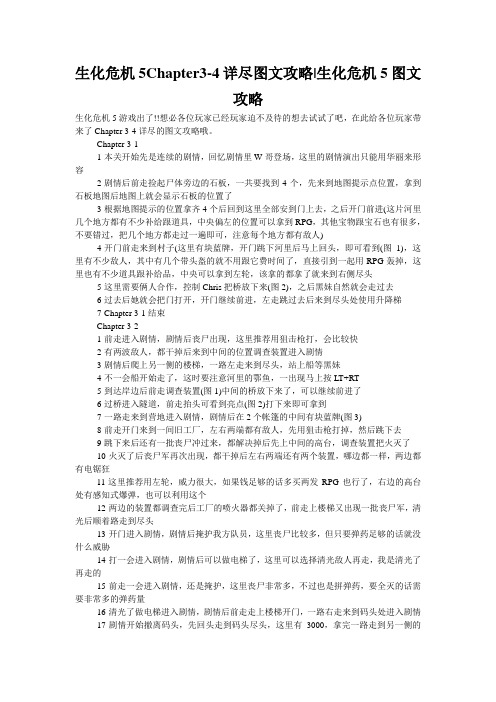
生化危机5Chapter3-4详尽图文攻略|生化危机5图文攻略生化危机5游戏出了!!想必各位玩家已经玩家迫不及待的想去试试了吧,在此给各位玩家带来了Chapter 3-4详尽的图文攻略哦。
Chapter 3-11-本关开始先是连续的剧情,回忆剧情里W哥登场,这里的剧情演出只能用华丽来形容2-剧情后前走捡起尸体旁边的石板,一共要找到4个,先来到地图提示点位置,拿到石板地图后地图上就会显示石板的位置了3-根据地图提示的位置拿齐4个后回到这里全部安到门上去,之后开门前进(这片河里几个地方都有不少补给跟道具,中央偏左的位置可以拿到RPG,其他宝物跟宝石也有很多,不要错过,把几个地方都走过一遍即可,注意每个地方都有敌人)4-开门前走来到村子(这里有块蓝牌,开门跳下河里后马上回头,即可看到(图1),这里有不少敌人,其中有几个带头盔的就不用跟它费时间了,直接引到一起用RPG轰掉,这里也有不少道具跟补给品,中央可以拿到左轮,该拿的都拿了就来到右侧尽头5-这里需要俩人合作,控制Chris把桥放下来(图2),之后黑妹自然就会走过去6-过去后她就会把门打开,开门继续前进,左走跳过去后来到尽头处使用升降梯7-Chapter 3-1结束Chapter 3-21-前走进入剧情,剧情后丧尸出现,这里推荐用狙击枪打,会比较快2-有两波敌人,都干掉后来到中间的位置调查装置进入剧情3-剧情后爬上另一侧的楼梯,一路左走来到尽头,站上船等黑妹4-不一会船开始走了,这时要注意河里的鄂鱼,一出现马上按LT+RT5-到达岸边后前走调查装置(图1)中间的桥放下来了,可以继续前进了6-过桥进入隧道,前走抬头可看到亮点(图2)打下来即可拿到7-一路走来到营地进入剧情,剧情后在2个帐篷的中间有块蓝牌(图3)8-前走开门来到一间旧工厂,左右两端都有敌人,先用狙击枪打掉,然后跳下去9-跳下来后还有一批丧尸冲过来,都解决掉后先上中间的高台,调查装置把火灭了10-火灭了后丧尸军再次出现,都干掉后左右两端还有两个装置,哪边都一样,两边都有电锯狂11-这里推荐用左轮,威力很大,如果钱足够的话多买两发RPG也行了,右边的高台处有感知式爆弹,也可以利用这个12-两边的装置都调查完后工厂的喷火器都关掉了,前走上楼梯又出现一批丧尸军,清光后顺着路走到尽头13-开门进入剧情,剧情后掩护我方队员,这里丧尸比较多,但只要弹药足够的话就没什么威胁14-打一会进入剧情,剧情后可以做电梯了,这里可以选择清光敌人再走,我是清光了再走的15-前走一会进入剧情,还是掩护,这里丧尸非常多,不过也是拼弹药,要全灭的话需要非常多的弹药量16-清光了做电梯进入剧情,剧情后前走走上楼梯开门,一路右走来到码头处进入剧情17-剧情开始撤离码头,先回头走到码头尽头,这里有3000,拿完一路走到另一侧的码头即可,一路的丧尸都可以5418-来到另一侧的码头处进入剧情,剧情后Chapter 3-2结束Chapter 3-21-前走进入剧情,剧情后丧尸出现,这里推荐用狙击枪打,会比较快2-有两波敌人,都干掉后来到中间的位置调查装置进入剧情3-剧情后爬上另一侧的楼梯,一路左走来到尽头,站上船等黑妹4-不一会船开始走了,这时要注意河里的鄂鱼,一出现马上按LT+RT5-到达岸边后前走调查装置(图1)中间的桥放下来了,可以继续前进了6-过桥进入隧道,前走抬头可看到亮点(图2)打下来即可拿到7-一路走来到营地进入剧情,剧情后在2个帐篷的中间有块蓝牌(图3)8-前走开门来到一间旧工厂,左右两端都有敌人,先用狙击枪打掉,然后跳下去9-跳下来后还有一批丧尸冲过来,都解决掉后先上中间的高台,调查装置把火灭了10-火灭了后丧尸军再次出现,都干掉后左右两端还有两个装置,哪边都一样,两边都有电锯狂11-这里推荐用左轮,威力很大,如果钱足够的话多买两发RPG也行了,右边的高台处有感知式爆弹,也可以利用这个12-两边的装置都调查完后工厂的喷火器都关掉了,前走上楼梯又出现一批丧尸军,清光后顺着路走到尽头13-开门进入剧情,剧情后掩护我方队员,这里丧尸比较多,但只要弹药足够的话就没什么威胁14-打一会进入剧情,剧情后可以做电梯了,这里可以选择清光敌人再走,我是清光了再走的15-前走一会进入剧情,还是掩护,这里丧尸非常多,不过也是拼弹药,要全灭的话需要非常多的弹药量16-清光了做电梯进入剧情,剧情后前走走上楼梯开门,一路右走来到码头处进入剧情17-剧情开始撤离码头,先回头走到码头尽头,这里有3000,拿完一路走到另一侧的码头即可,一路的丧尸都可以5418-来到另一侧的码头处进入剧情,剧情后Chapter 3-2结束Chapter 3-31-关卡开始后进入剧情,剧情后进入水战(只是站在船上)2-一路都有很多丧尸,走一会进入剧情,剧情后下船来到岸上,饶到另一边调查装置把门打开3-门开了后返回船上继续前进,走一会再次需要开门,上岸饶到另一边把门打开后返回船上4-开门走一会进入剧情,剧情后进入BOSS战(刚开始先用机枪打几下,当BOSS伸出4个触手后要快速打掉,4个触手打掉后不要给它喘息的机会,马上使用甲板后方的重炮攻击BOSS核心部份,打中后进入剧情,剧情后BOSS就会一直呆在船头不停的伸4个触手,这时无视触手直接使用甲板前方的机枪攻击BOSS核心部位,触手打过来时有提示,很容易闪,反复用机枪打几回即可搞定它,注意这里不推荐给黑妹任何弹药,身上别给她留太多,不然她全会浪费掉,不然到了下一关就要从没弹药的状态开始了5-干掉后进入剧情,剧情后Chapter 3-3结束Chapter 4-11-剧情后前走来到地图点位置,开门来到一个遗迹2-前走会出现丧尸,一路来到拐角处进入剧情,剧情后与黑妹暂时分开,这里要快速饶路赶过去救援黑妹,因为敌人非常多3-与黑妹会合后选择无视敌人一路前进到矿车处,调查矿车后俩人一起掉到下层(这里要快速按A)4-左,右,后,都有道具可拿,拿完了再前走开门,开门进入剧情,剧情后先把杂兵清掉,然后来到中央位置转动摇杆来开门,门开启后快速冲过去,速度慢了就要重来,Chris 自己冲过去就算成功,成功后进入剧情5-剧情后前走几步再次进入剧情,剧情后进入QTE状态,按照屏幕提示快速度连打+输入即可,A(跑)X(跳)最后按LT+RT即可6-成功逃脱后进入剧情,剧情后前走来到尽头处,与黑妹合作调查机关,门开启,继续前进来到一片废墟7-中央左侧有重击枪可以拿,左上角的石像需要两个人一起配合来开,可以拿到宝石8-返回下方的石像处,拉动石像后左侧的金色石像的楼梯下来了,同时杂兵出现9-杂兵干掉后来到金色石像前,拉下机关后中央的楼梯下去了,来到左上角的紫色石像处,调查一下后黑妹会在这待机10-来到下一层的左上角调查紫色另一座紫色石像进入剧情,剧情后大量杂兵出现,自己打的话会有点吃力,黑妹叫过来帮忙会快一些11-都解决掉后调查下层的紫色石像,黑妹就自动回到上一层的紫色石像处,等她到位后拉下机关12-拉下机关后右侧挡路的楼梯下去了,走过去来到红色的石像处,拉下红色石像的机关后上层的楼梯可以通过了13-调头走几步进入剧情,剧情进入BOSS战,还是之前打过的那只飞行硬壳虫,这里可以选择无视它,一路顺着楼梯往上走,来到上段楼梯后出现QTE,快速连打A,成功后进入剧情14-剧情后前走开门进入剧情,剧情后Chapter 4-1结束Chapter 4-21-前走来到中央的石板处,调查后提示需要3块石板,2-先走左侧,左走进入剧情,剧情后大量丧尸出现,一路清过去,尽头处即可拿到鱼之石板3-拿到后丧尸会再次出现,可以选择无视,也可以选择清场,看个人选择,不过为了以后还是留些弹药吧4-来到右侧,注意广场有激光扫射,不要被扫到,看准时机过去,来到尽头处可以拿到兽之石板,同样这边一路也有不少丧尸来凑热闹5-返回广场,来到左上角,来到尽头处(图3)把黑妹扔过去,让她去拿最后一块石板,拿到后马上把她叫回来6-之后原来返回广场,把3块石板全装上去,之后一路直走开门进去,直走开门来到机关房。

Chapter11. GIS is a system of hardware, software and procedures to facilitate the management, manipulation, analysis, modeling, representation and display of geo-referenced data to solve complex problems regarding planning and management of resources.GIS是一个由硬件,软件和程序组成的系统,便于管理,处理,分析,模拟,表现并显示地理参照数据,从而解决规划和资源管理的复杂问题。
2. GIS technology integrates common database operations such as query and statistical analysis with the unique visualization and geographical analysis benefits offered by maps. These abilities distinguish GIS from other information systems and make it valuable to a wide range of public and private enterprises for explaining events, predicting outcomes, and planning strategies (ESRI)地理信息系统技术将诸如查询和统计分析的常见的数据库操作和地图特有可视化功能和地理分析优势集成起来。
这些功能是区分地理信息系统和其他信息系统的关键,并且对于众多的公共和私营企业用于事件解析,结果预测和战略规划十分有价值3.Projection is a fundamental component of mapmaking. A projection is a mathematical means of transferring information from the earth’s three-dimensional, curved surface to a two –dimensional medium-paper or a computer screen. Mathematically speaking, map projections are transformations of geographic coordinates (latitude, longitude) into the Cartesian (x, y) coordinate space of the map.投影式地图制作的一个基本要素,同时也是将信息从地球三维曲面上传递到纸张或者电视屏幕二维介质上的一种数学手段。

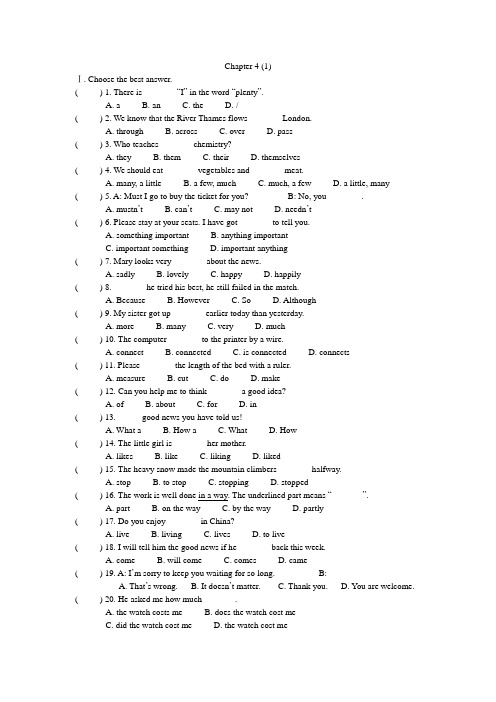
Chapter 4 (1)Ⅰ. Choose the best answer.( ) 1. There is _______ “I” in the word “plenty”.A. aB. anC. theD. /( ) 2. We know that the River Thames flows _______ London.A. throughB. acrossC. overD. pass( ) 3. Who teaches _______ chemistry?A. theyB. themC. theirD. themselves( ) 4. We should eat _______ vegetables and _______ meat.A. many, a littleB. a few, muchC. much, a fewD. a little, many ( ) 5. A: Must I go to buy the ticket for you? B: No, you _______ .A. mustn’tB. can’tC. may notD. needn’t( ) 6. Please stay at your seats. I have got _______ to tell you.A. something importantB. anything importantC. important somethingD. important anything( ) 7. Mary looks very _______ about the news.A. sadlyB. lovelyC. happyD. happily( ) 8. _______ he tried his best, he still failed in the match.A. BecauseB. HoweverC. SoD. Although( ) 9. My sister got up _______ earlier today than yesterday.A. moreB. manyC. veryD. much( ) 10. The computer _______ to the printer by a wire.A. connectB. connectedC. is connectedD. connects( ) 11. Please _______ the length of the bed with a ruler.A. measureB. cutC. doD. make( ) 12. Can you help me to think _______ a good idea?A. ofB. aboutC. forD. in( ) 13. _____ good news you have told us!A. What aB. How aC. WhatD. How( ) 14. The little girl is _______ her mother.A. likesB. likeC. likingD. liked( ) 15. The heavy snow made the mountain climbers _______ halfway.A. stopB. to stopC. stoppingD. stopped( ) 16. The work is well done in a way. The underlined part means “_______”.A. partB. on the wayC. by the wayD. partly( ) 17. Do you enjoy _______ in China?A. liveB. livingC. livesD. to live( ) 18. I will tell him the good news if he _______ back this week.A. comeB. will comeC. comesD. came( ) 19. A: I’m sorry to keep you waiting for so long. B: _______A. That’s wrong.B. It doesn’t matter.C. Thank you.D. You are welcome. ( ) 20. He asked me how much _______.A. the watch costs meB. does the watch cost meC. did the watch cost meD. the watch cost meⅡ. Complete the sentences with the given words in their proper forms.1. Air is __________. We can’t see it, but we can feel it. (visible)2. Sometimes electricity is __________ if you are not careful enough. (danger)3. Who is the lady’s __________? (serve)4. The magazine “Readers” comes __________. (month)5. If you drive __________, you will be safe. (care)Ⅲ. Rewrite the following sentences as required.1. We have already finished our homework . (改为否定句)We __________ finished our homework __________.2. The girls arrived at the airport in the end. (保持原意)The girls arrived at the airport __________ __________.3. He went to the shop because he wanted to buy some food. (对划线部分提问)__________ __________ he go to the shop?4. The plane will take off in fifteen minutes. (对划线部分提问)__________ __________ will the plane take off?5. The wooden ball is heavy, but that iron ball is heavier. (保持愿意)That iron ball is __________ __________ the wooden ball.A dangerous servant (Ⅰ)“That’s not a bad __________ ,”said Dad, “although electricity is much more dangerous __________ water , electricity is a good servant, but a dangerous __________. You must always be careful with it. Can you tell me what it __________ like ? ”Benny scratched his head. Dad said, “Nobody’s ever seen __________. It’s invisible. But we can see, hear or feel. Can you think of an example? ”Benny said, “Light! The __________ in a light bulb.”1.—Could I borrow your dictionary?—Yes,of course you _______.A. mightB. willC. canD. should2. The baby is sleeping. You _______ make so much noise.A. won’tB. can’tC. shouldD. needn’t3. I wasn’t sure whether I _______ offer to help or not.A. shouldB. mightC. wouldD. needed4. —Can you speak Japanese?—No, I _______.A. mustn’tB. can’tC. needn’tD. may not5. —Would you like to go boating with us? —Yes, _______.A. I’d likeB. I wantC. I’d like toD. I do6._______ you like to have another try?A. CouldB. WillC. WouldD. Do7. Excuse me. _______ you please pass me thatbook?A. DoB. ShouldC. WouldD. Must8. This pen looks like mine, yet it isn’t. Whose _______ it be?A. mustB. canC. mayD. might9. Two eyes _______ see more clearly than one.A. canB. mayC. willD. should10. —_______ you come and join us?—I wish I could, but I am busy at the moment.A. MustB. MayC. WouldD. Should。
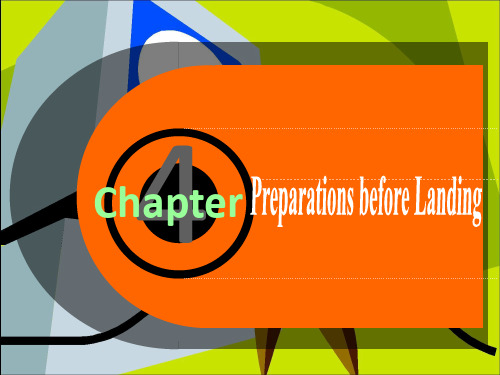
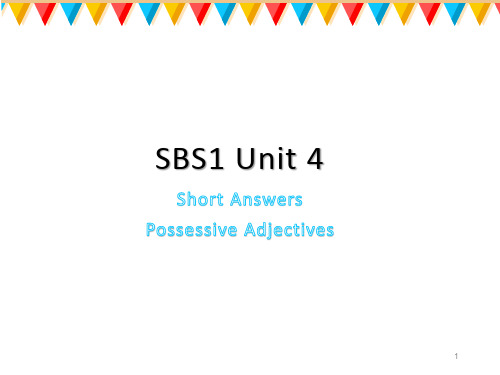


Chapter4 基础过关一.基础知识测试:A.课文单词填空1. Not so many years ago, you h ever saw computers.2.There are also many t ,h computers in your home.3.Y ou are more d on computers than you realize.4.What k of jobs can a computer do?5.More importantly, they can o railways.6.I am c than a computer.7.Will we have n to do?8.One day computers may be able to do more things than a h brain.9.In the f , they may even be better at doing their jobs than doctors and judges. 10.Will computer make our lives b or w in the future?B.重点短语1. 几乎不2.未察觉3. 写关于某方面的文章4.更重要的是5.基于这些原因6.问题的答案7.暂时,目前8.能够做9.在将来10.在某人看来11.缺乏12.用…做…13.依赖于14.在世界上15.(属于)某人自己的16.提问题17.使…更好二.考点突破考点1:be unaware of =do not realize = do not know aboutbe aware of = realize = understand例句:Y ou might be unaware of them.你可能没有意识到它们.用英文解释划线部分试题:( )1.He was unaware of the serious situation he was facing.A. understoodB. didn’t understandC. knewD. recognize( )2.They realized that the methods must be replaced with new ones.A. understoodB. knewC. came into beingD. came true 考点2:be dependent on = depend on 依赖于例句:Y ou are more dependent on computers than you realize.试题: ( ) 1. She was dependent on others on her way to success.(用英文解释划线部分)A. was in bad need of othersB. needed too much help fromC. could stand on herselfD. can not stand on herself考点3:for the time being = at present例句:The answer to this question is, for the time being, “No”.这个问题的答案目前来说是”不”.试题:( ) 1.We cannot answer the question for the time being.(用英文解释划线部分)A. that timeB. that momentC. at presentD. at once考点4:hardly ever = seldom = rarely = not often例句:Not so many years ago, you hardly ever saw computers.在很久以前,你几乎看不到电脑.试题: ( )1.Sometimes children hardly understand their parents,_________?A. don’t theyB. did theyC. do theyD. are thry2.She hardly ever takes exercise after supper.(解释句子)______________________________________________________________________( )3. —What do you think of Mrs Smith—our science teacher?—She is kind and friendly. She _________ gets angry with us.A. alwaysB. oftenC. usuallyD. rarely考点5:seem to do ,seem + that 从句似乎,好像例句:Now they seem to be everywhere.试题: 1.用简单的英语解释下列句子.It seems you are interested in playing computer games.(seem to do)______________________________________________________________2.一周又一周, 我们好像只是在做着同样的工作.Week after week, we just _____ _______ _______ the same job.考点6: be able to do sth 能够做某事例句:However, one day computers may be able to do more things than a human brain.试题: 总有一天, 全中国的学生都将能用上平板电脑.One day, the students around China _______ ________ _______ ________ _______ tablet computers.考点7:in one’s opinion =in one’s view例句:In my opionion, Sichuan food is better. 依我看来,四川食物比较好.试题:In my opinion, students should go to school on time.( 解释句子)______________________________________________________________________考点8:raise v.提出rise v. 升起ra ise one’s head/ han d/ voice 抬头/ 举手/ 提高嗓门例句:This raises interesting questions.这提出了有趣的问题.The sun rises from the east at daybreak.试题:( )1. After a heavy rain, sea levels _____ four inches.A.roseB.is risenC.raisedD.is raised( )2. Soon after Sichuan earthquake, our school decided to ___ money for the homeless people there.A .lend B. raise C .rent D .invent考点9: use…for doing sth = use sth to do例句: We use the keyboard for typing in information.试题: —What’s the use of the flash disk?—We use it for ________ information.A. storingB. typingC. printingD. leaving考点10:distance n. 距离distant adj. 遥远的例句:distance from school 离学校的距离in the distance 在远方试题1.What’s the distance of your s chool to the book shop?(解释句子)______________________________________________________________________Key: How far is it from your school to the book shop?考点11:What do/ does…think of…? = How do you like…=What kind of + n.+be+主语例句:What does Joyce think of Sichuan food? Joyce认为四川的食物怎么样呢?试题:1. What do you think of your school? (解释句子)_______________________________________________________________________________( ) 2. —__________ teacher is Bill?—He is strict with his students.A. What kindB. How kindC. How kind ofD. What kind of三.综合练习:.用英文解释划线部分( )1.My brother has a mouse for his computer.A. an electronic thingB. a small animalC. a kind of machine( )2.Her job is to print books and newspapers.A. write…on paperB. produce…on paperC. collect…on paper( )3. Shenzhen is developing more quickly than people realize.A. watchB. dreamC. know( )4.Bill is a train driver and he knows how to operate the underground.A. rideB. driveC. fly( )5.Y ou raised a funny question, but I can’t answer you.A. put outB. got downC. asked选择最佳答案( ) 1. It ________ snows in Guangdong Province.A. alwaysB. sometimesC. rarelyD. usually( ) 2.—How long will Peter stay here?—Two _______ weeks till he leaves.A. manyB. muchC. moreD. most( ) 3. Y ou can not be dependent _______ your parents forever.A. upB. onC. atD. in( ) 4. We can use services __________ MSN messenger or Skype to chat with others on the Internet.A. such asB. for exampleC. instead ofD. as well as( ) 5. If you want to ask any questions, please _________ your hand.A. raiseB. raisesC. riseD. rises( ) 6. The Internet _______ us to use the World Wide Web ( also known as WWW or the Web).A. letsB. hasC. makesD. allows( ) 7. There ________ a meeting this afternoon. But I am not sure.A. may beB. may haveC. must beD. must have( ) 8. Computer languages are _________ languages, not _________ languages.A. writing … speakingB. written … spokenC. writing … spokenD. written … speaking( ) 9. --- I think Cantonese food is more delicious than Sichuan food.--- ____________. In my opinion, Sichuan food is more delicious.A. I agree with you.B. That’s a good idea.C. I don’t agree.D. Thank you.( )10.—Is the robot(机器人) useful in your house?—Y es, it can do lots of housework _____ cleaning the window.A. asB. forC. likeD. with( )11.—Do you know the answer ______ this question?—Sorry, please ask Jim. He may have an idea _____ his own.A. to; ofB. of; forC. for; ofD. with; for( )12.—Computers give us much help, I think.—_________ , they can’t completely (完全地) be in place of humans.A. For exampleB. HoweverC. At firstD. By the way( )13.Humans may travel to the moon _________ .A. in the pastB. for the time beingC. at the momentD. in the future( )14.I’m going to send the important letter _______ airmail.A. inB. byC. onD. with( )15.The girl likes to _________ a little sugar ______ the cup before she drinks coffee.A. take; upB. put; onC. take; offD. put; into( )16.—Can you help me type _______ an English article, Sam?—Sorry, I can’t. I am busy ________ the Three Kingdoms(三国) now.A. on; playingB. on; to playC. in; playingD. in; to play( )17.Tom isn’t here ________ . He has gone to the library to get some books.A. in the endB. at the momentC. in the futureD. in the first place根据所给汉语完成句子。